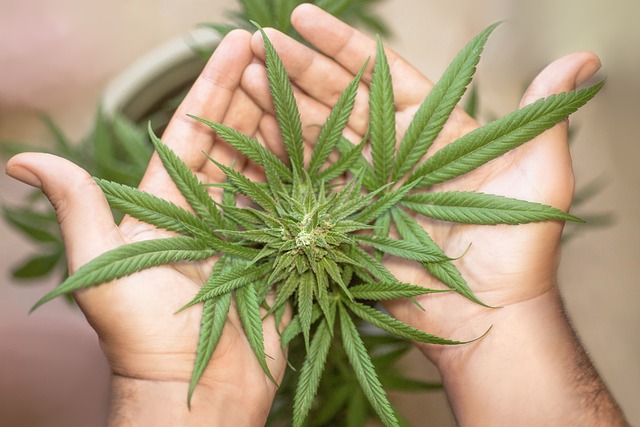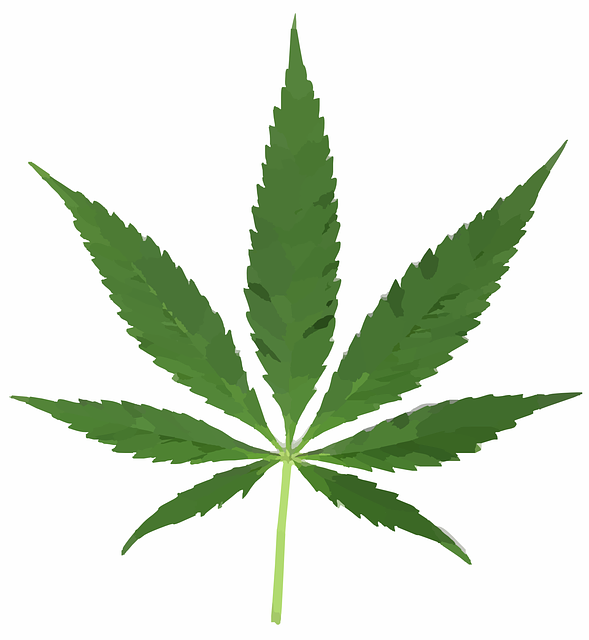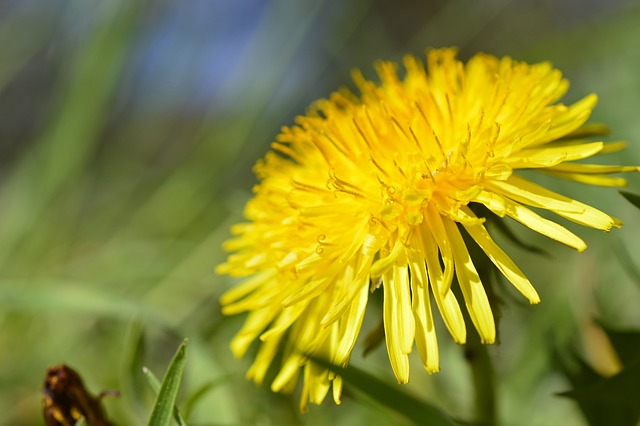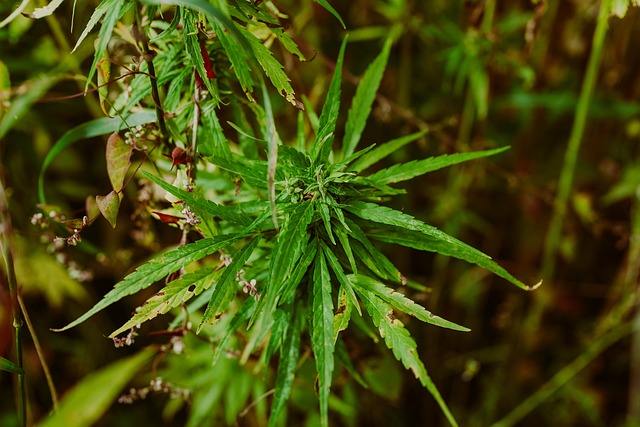2019's Cannabis Regulation and Tax Act in Illinois legalized adult-use cannabis, including THCA under certain conditions. THCA, a non-psychoactive cannabinoid found in raw cannabis plants, is legal in Illinois when derived from hemp containing less than 0.3% delta-9 THC. It can be sold in licensed dispensaries following state regulations and local laws, which may vary by municipality. The Illinois Department of Public Health provides guidance on safe use, with age restrictions and responsible consumption advocated. THCA has unique medicinal properties that do not induce a 'high' and is being studied for its potential benefits. Consumers interested in THCA should be aware of mild side effects and cautious dosing. In Illinois, THCA is regulated to ensure safe production and labeling, with strict testing protocols. It's essential for consumers to purchase from licensed dispensaries to stay compliant with the evolving legal landscape.
Exploring the nuanced impact of THCA flower on well-being, this article delves into the multifaceted nature of this cannabinoid, particularly within the legal confines of Illinois. As THCA emerges as a precursor to THC, understanding its unique effects and regulatory status is crucial for consumers. We will examine the potential side effects associated with THCA flower consumption, compare its effects to those of THC, and discuss the role of terpene profiles in influencing these experiences. With a comprehensive look at dosage, mental and physical health impacts, interactions with other substances, and quality control measures, this piece aims to provide a well-rounded view of THCA’s current legal standing and scientific understanding in Illinois, empowering consumers with knowledge for safe usage.
- Understanding THCA Flower and Its Legal Status in Illinois
- The Emergence of THCA as a Precursor to THC
- Potential Side Effects of THCA Flower Consumption
- THCA Flower vs. THC: What Are the Differences?
- Regulatory Framework Governing THCA in Illinois
Understanding THCA Flower and Its Legal Status in Illinois

THCA, or Tetrahydrocannabinolic Acid, is a non-psychoactive cannabinoid found in raw or uncured cannabis plants, which degrades into THC upon heating. As interest in cannabinoids grows, understanding the legal status of specific compounds becomes increasingly important for consumers and regulators alike. In Illinois, the legal landscape regarding cannabis products has evolved significantly with the passage of the Cannabis Regulation and Tax Act (CRTA) in 2019, which legalized adult-use cannabis including THCA flower under certain conditions. The act paved the way for licensed dispensaries to sell a variety of cannabis products, including those containing THCA, provided they comply with state regulations.
Consumers in Illinois looking to legally purchase THCA flower must ensure that their purchase aligns with both state and local laws. The CRTA set forth guidelines that define permissible quantities and impose restrictions on sales to prevent diversion into illegal markets. It’s crucial for individuals to stay informed about these regulations as they can vary by municipality within the state. Additionally, the Illinois Department of Public Health (IDPH) provides guidance on the safe use and possession of cannabis products, emphasizing the importance of age restrictions and responsible consumption. Understanding the legal nuances surrounding THCA flower in Illinois is essential for anyone interested in its potential benefits or incorporating it into their wellness routine within the confines of the law.
The Emergence of THCA as a Precursor to THC

The non-psychoactive compound tetrahydrocannabinolic acid (THCA) has garnered significant attention within the legal cannabis community, particularly in states like Illinois where THCA-rich products are part of the regulatory framework. As a precursor to the more well-known psychoactive compound delta-9-tetrahydrocannabinol (THC), THCA has emerged as a subject of interest due to its potential therapeutic properties and varying effects on the body. While both compounds are found in cannabis, THCA is present in raw or uncured cannabis plants and flowers, and it’s only through decarboxylation—heating at certain temperatures—that THC is formed. In Illinois, where the cultivation, possession, and sale of cannabis-derived products are regulated under the Illinois Cannabis Regulation and Tax Act, THCA has become a focal point for researchers and consumers alike. The interest in THCA stems from its unique interactions with the body’s endocannabinoid system, which may offer benefits without the psychoactive ‘high’ associated with THC. As such, products containing THCA are being explored as alternatives for those seeking the potential wellness effects of cannabis without the mind-altering experience. The emergence of THCA as a precursor to THC has not only sparked curiosity in scientific circles but also fueled an array of product offerings in the legal market, allowing consumers to experiment with its potential benefits and compare its effects to those of THC.
Potential Side Effects of THCA Flower Consumption

THCA, or tetrahydrocannabinolic acid, is a non-psychoactive cannabinoid found in the Cannabis sativa plant that is believed to have medicinal properties. As legislation evolves, products containing THCA, such as THCA flowers, become more accessible; for instance, they are recognized as legal in Illinois provided they adhere to state regulations. While THCA itself does not produce psychoactive effects like its counterpart THC (tetrahydrocannabinol), it is often converted to THC when heated or exposed to certain conditions. It’s crucial for consumers to understand the potential side effects associated with THCA flower consumption.
Reported side effects of THCA flower consumption are generally mild and can include dry mouth and red eyes, similar to those experienced with cannabis products containing THC. Additionally, some users may experience dizziness or feelings of anxiety, particularly if they are sensitive to cannabinoids or consume an amount that is too high for their tolerance level. It’s also worth noting that individual reactions can vary widely, and the side effects profile may differ based on factors such as dosage, the method of consumption, and a user’s unique physiology. As with any substance, it is advisable to start with a low dose to gauge personal response before considering an increase in dosage. Given the legal status of THCA flowers in Illinois, consumers are encouraged to purchase from reputable sources and adhere to recommended guidelines for safe use.
THCA Flower vs. THC: What Are the Differences?

delta-9-tetrahydrocannabinolic acid (THCA) flower is gaining attention for its potential effects and properties, which distinguish it from tetrahydrocannabinol (THC), the psychoactive component of cannabis that is well known for its intoxicating effects. THCA is the raw form of THC before it undergoes heat degradation, typically when cannabis is smoked or vaporized. This precursor to THC exists naturally in raw cannabis plants and flowers, and unlike THC, THCA is not psychoactive. As a result, products derived from THCA flower, which can be consumed in various forms such as edibles, capsules, or sublingual preparations, may offer therapeutic benefits without the ‘high’ associated with THC.
In terms of legal status, THCA itself is not explicitly defined within state laws, but it’s worth noting that derivatives of hemp, including THCA, are legal under the 2018 Farm Bill as long as they contain less than 0.3% delta-9-THC. In states like Illinois, where both medical and recreational cannabis are legal, THCA flower is a popular choice for those seeking the potential wellness benefits of cannabinoids without the psychoactive effects. The differences between THCA and THC are significant, particularly in terms of their effects on the body. While THC primarily binds with the CB1 receptors in the brain to produce its psychoactive effects, THCA is believed to have a more complex interaction profile, potentially offering therapeutic benefits such as anti-inflammatory and neuroprotective properties without altering one’s mental state. This makes THCA flower an attractive option for individuals looking for cannabinoid therapy for various conditions. As with any substance, it’s advisable to consult with a healthcare professional before incorporating THCA flower into one’s wellness regimen, especially given the evolving legal landscape and individual differences in responses to cannabinoids.
Regulatory Framework Governing THCA in Illinois

In Illinois, the regulatory framework surrounding THCA, or Tetrahydrocannabinolic Acid, has been shaped by the Illinois Cannabis Regulation and Tax Act, which was enacted in 2019. This legislative move not only legalized cannabis for adult use but also established a comprehensive system for regulating and taxing THCA products derived from hemp. Under this act, THCA is considered a legal substance when it is extracted from hemp and contains no more than 0.3% delta-9 tetrahydrocannabinol (THC) on a dry weight basis. The Illinois Department of Public Health oversees the production and sale of cannabis products, including those containing THCA, ensuring they are safely manufactured and labeled with accurate information regarding their contents. Retailers must obtain licenses from the state and comply with local zoning laws to legally sell THCA products in Illinois. Additionally, the state imposes strict testing requirements for potency, contaminants, and other harmful substances to protect public health. Consumers are advised to purchase THCA products from licensed dispensaries to ensure they are complying with state regulations and guidelines. It is crucial for both retailers and consumers to stay informed about the evolving laws and regulations as Illinois continues to refine its approach to cannabis and related compounds, including THCA.
In conclusion, the exploration of THCA flower within the context of its legal status and potential effects in Illinois sheds light on a burgeoning area of interest for both medical researchers and consumers. As we’ve examined, THCA, which is legal in Illinois under certain regulations, presents a unique precursor to THC, with distinct implications for well-being and therapeutic applications. While the emergence of THCA as a subject of scientific inquiry has been marked by promising developments, it’s crucial for potential users to be well-informed about its side effects, which can include dizziness, paranoia, or anxiety, among others. A thorough understanding of the regulatory framework governing THCA in Illinois is essential for safeguarding public health and ensuring compliance with state laws. As research continues to evolve, the dialogue surrounding THCA’s role in health and wellness will undoubtedly expand, underscoring the importance of informed decision-making and responsible use within the legal parameters established by the state.
